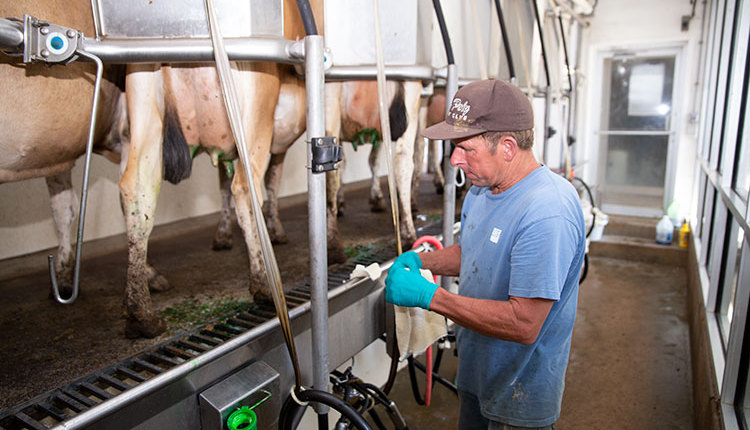
News publications such as Hoard's Dairyman can only print what they know to be true at press deadline. By now we all know that the reaction to "Brexit" was short-term panic versus longer-term reflection.
The U.S. stock market, reflected in the Dow Jones industrial average, at first dropped the 870 points that Hoard's Dairyman reported in Bye-bye Britain, then gained most of it back by the end of the following week after you went to press. The weakness of short-term stock movements are always that investors removed from actual business management make panic decisions, swinging from bull to bear and then back to bull from one CNN news cycle to the next.
Britain was never a full EU member, retaining the pound as its currency (important to all its ex-colonial trade partners outside the EU) rather than submit to a super-national Euro bank. Given our U.S. experiences with the impacts of Federal Reserve tinkering on the U.S. economy, this always seemed wise to me.
Ever since Maggie Thatcher drew a halt to the morass of socialist economy-rigging in nationalized industrial Britain, the UK economy and society have pulled away from the pervasive continental brand of cradle-to-grave social safety netting that is bankrupting eurozone nations one at a time. Why should working Brits subsidize nonworking Greeks to jeopardize their own future financial security? A little "tough love" today could improve everybody's position tomorrow.
Meanwhile, the two years it is predicted that this divorce settlement will require will find financial and commodity markets adjusting daily to whatever proves to be the final outcome, and the best prediction is that the Earth will continue to rotate and all upon it (except for a few politicians) will still be standing after it is all over.
Your article mentions the impact that exchange rates have on dairy exports and imports. Surplus dairy production flows to whomever does not have enough dairy and can pay for it, and if the price is higher than they can pay, a sale will not be made. The dairy quotas in the eurozone having crumbled, European dairymen now share the pain we feel here with base milk prices below the cost of production - but a falling Euro will make their dairy surpluses more exportable than ours, which may ease some of the financial pain for eurozone dairymen.
Now that we have exported dairy production technology to every major export market we used to have, it is foolish dairy policy to continue to expand U.S. production capacity. Michigan, as an example, is greatly at fault for not adopting permitting that considers whether the market has need for expanded production or, even closer to home, if it has the capacity to process increased production for any viable market.
-Greg Palen
Michigan dairy producer and the owner of Michigan Livestock Service
July 11, 2016








